
Processing Your Payment
Please do not leave this page until complete. This can take a few moments.
Youth entrepreneur program in Farmington plans campus expansion
 Photo / Courtesy Center for Entrepreneurial Studies
The center opened a 3,000-square-foot storefront and maker space at 156 Main St. for youth to pursue creating and selling goods and developing workforce skills.
Photo / Courtesy Center for Entrepreneurial Studies
The center opened a 3,000-square-foot storefront and maker space at 156 Main St. for youth to pursue creating and selling goods and developing workforce skills.
An entrepreneurial studies program for youth and young adults is planning to develop a six-acre campus in Farmington.
The Center for Entrepreneurial Studies bought 165 Whittier Road and hired Platz Associates, an architecture firm in Auburn, to design a campus that builds on the center’s initial successes.
Those successes include developing a retail and maker space run by youth and connecting with businesses to build a tiny house for at-risk youth.
“We want to keep that momentum going,” said Bonita Tompkins, the center’s founder and executive director.

Tompkins is a former teacher, with a focus on business and entrepreneurship, at Mt. Blue High School in Farmington.
The school has great programs in the trades, she said. But she thought the students could also use tools and resources needed to start and grow their own businesses.
In 2018, Tompkins and some of her students piloted a project to assist students with accessing internships and entrepreneurial opportunities.
The group continued to develop the idea by incorporating the Center for Entrepreneurial Studies as a nonprofit that today provides internships through the retail store and offers entrepreneurial education and support through its connected maker space, where participants can sell their goods and services while learning skills in areas like marketing, finance and legal.
First project: retail
In March 2020, the center was approached by a downtown business to pursue the development of a retail store following the closure of three gift and retail stores. The center opened a 3,000-square-foot storefront and maker space at 156 Main St. for youth to pursue creating and selling goods and developing workforce skills.
The store was closed shortly afterward due to the pandemic. But it reopened with items purchased from traditional wholesalers and products made by the students. Tompkins said she initially financed the inventory purchases with her own savings and was also volunteering her time to get the enterprise off the ground.
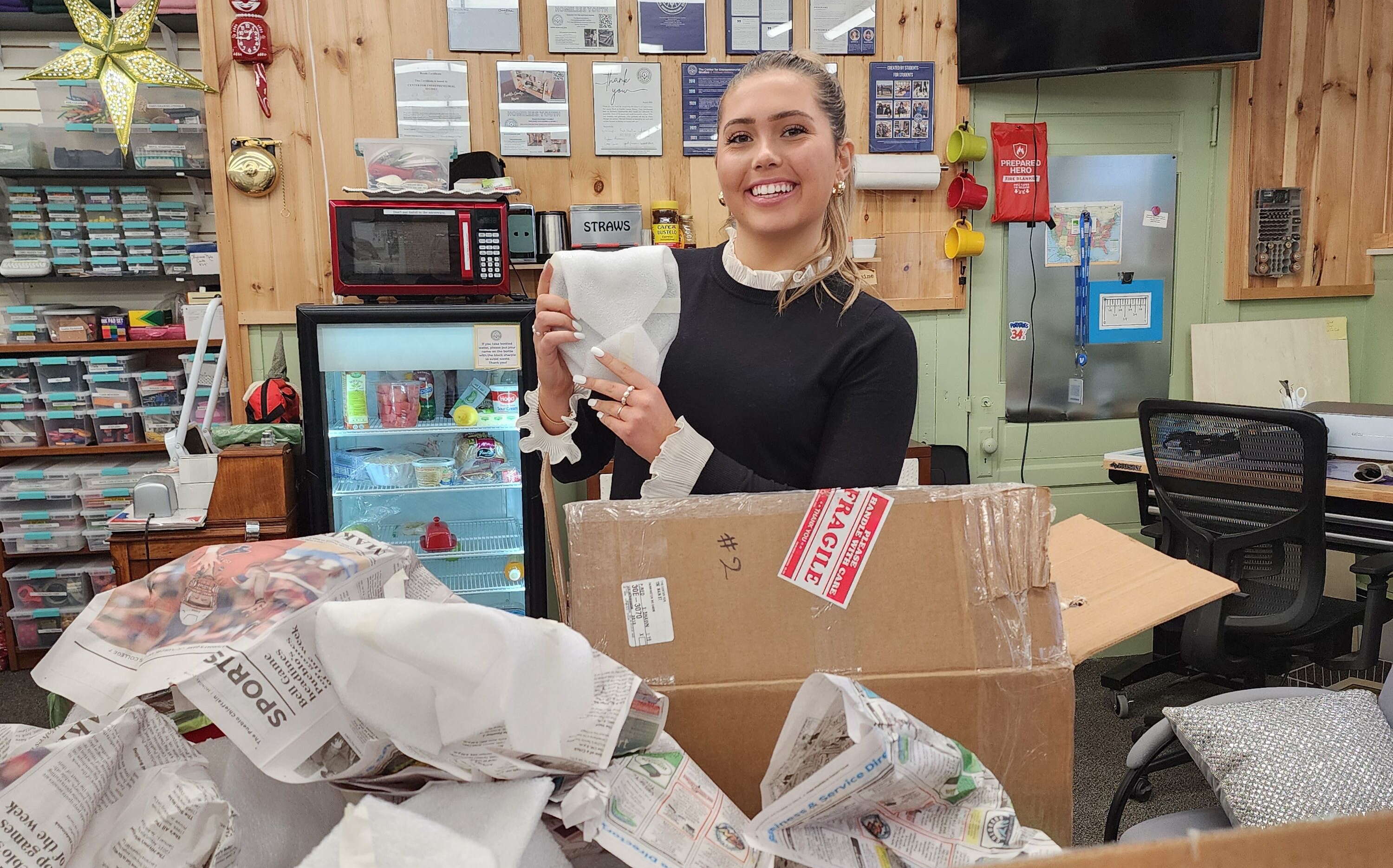
At the gift shop, youth are hired as interns to learn business, communication and customer service skills, such as making eye contact, money-handling, end-of-day reporting, selecting product lines, issuing purchase orders and placing orders with manufacturers and sales representatives.
The maker space has tools such as computers, printers, hand tools, a laser printer, a 3D printer and a “smart” cutting machine for participants to make gift items. Students have access to barcoding equipment to make stock keeping units, or SKUs, for their products and worksheets to complete purchase orders when they enter inventory into the point-of-sale system.
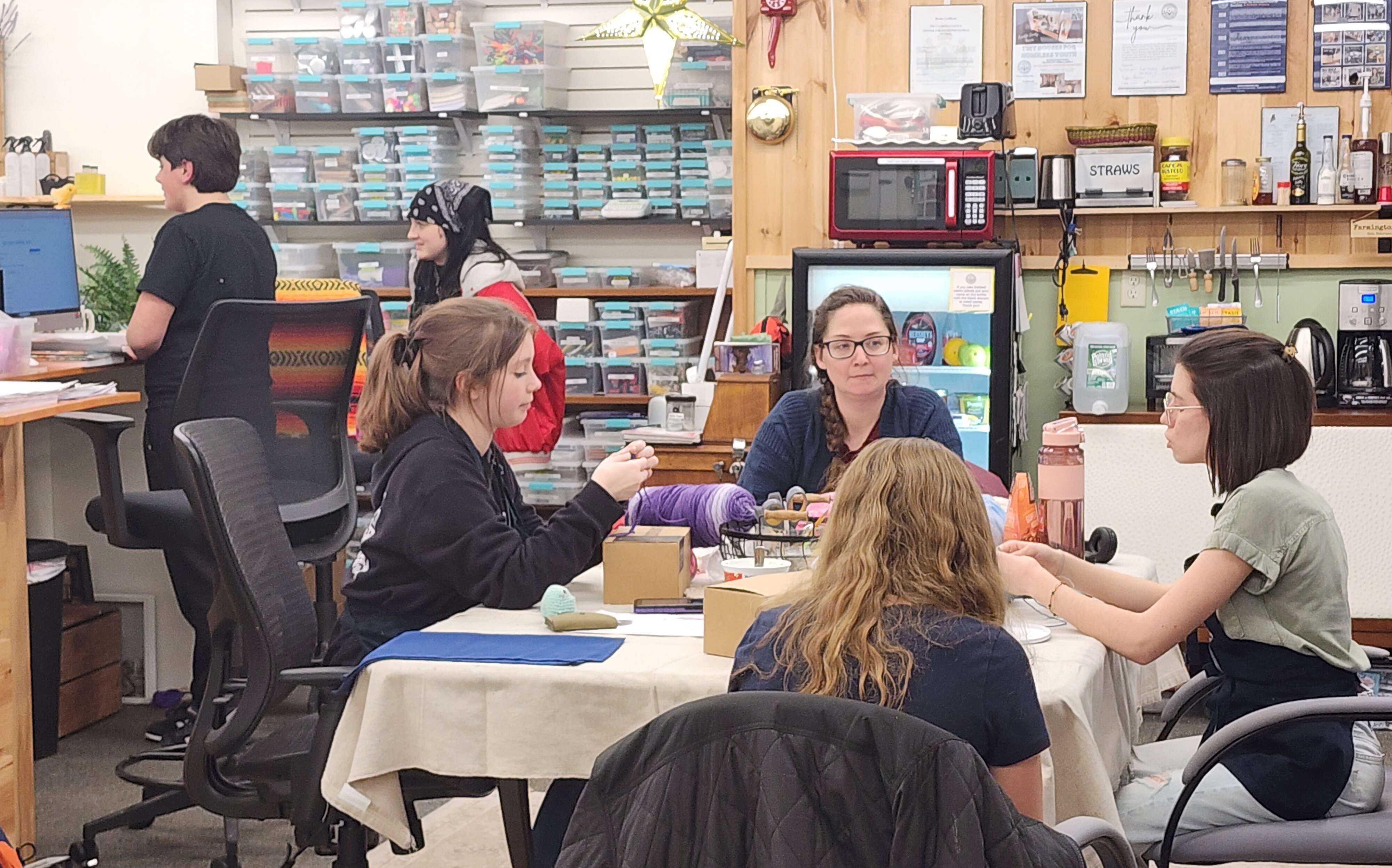
“With a downtown retail store, offices, maker space, technology and tools, we’re well-prepared to make a tangible impact,” Tompkins said.
A tiny home with a 'Maine Cabin Masters' flair
The center’s next project, called “Making Home Possible,” was a collaboration with Manchester-based Kennebec Cabin Co .— which produces the renovate-a-wreck reality TV show “Maine Cabin Masters” — to build a tiny home in a building shell provided by OpBox, a Woolwich maker of modular structures. Over two dozen additional businesses contributed to the project, which resulted in Maine's first tiny home on wheels for homeless youth.(The project was featured in Season 10, Episode 13.)
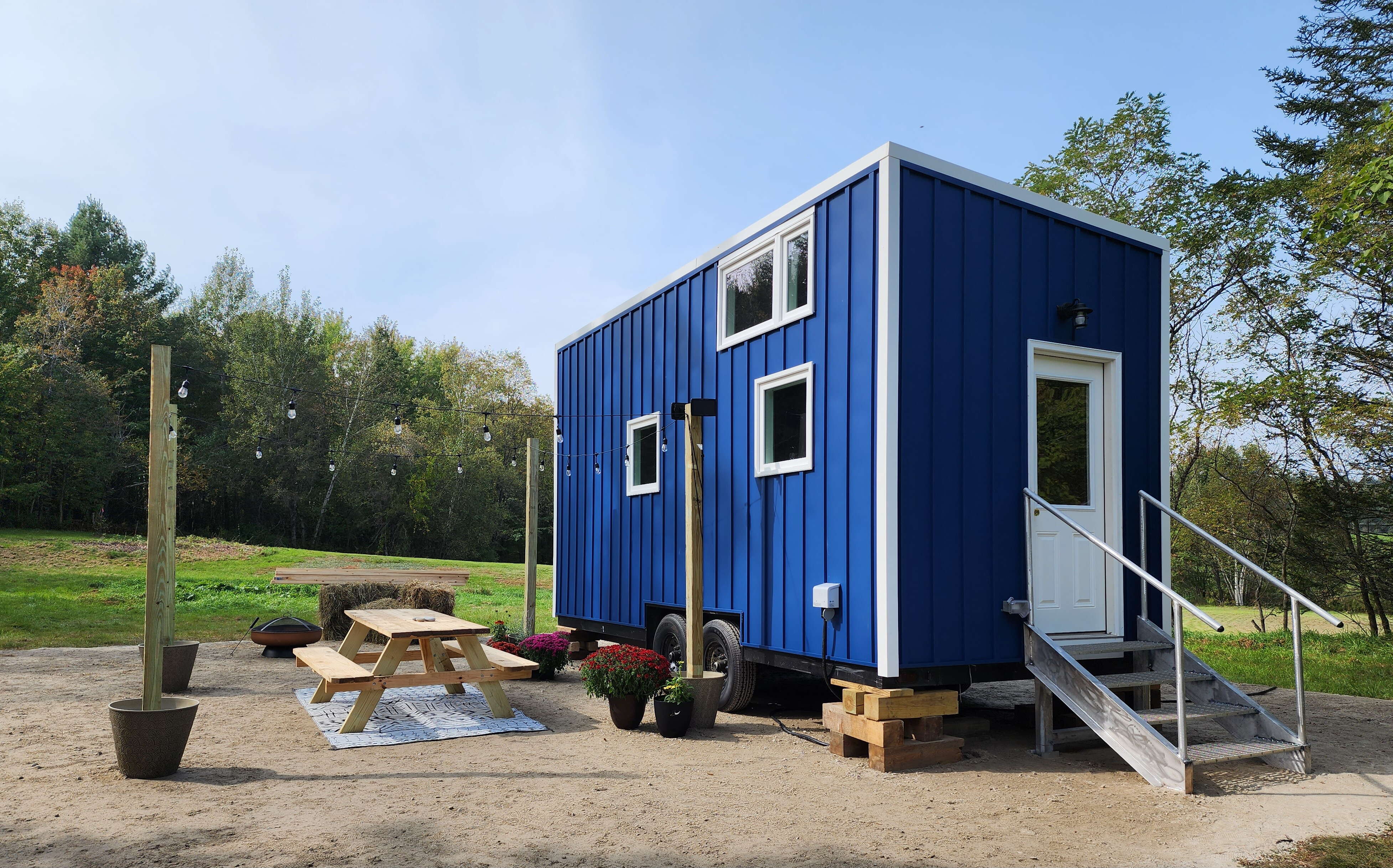
“Making Home Possible” has a broader mission that aims to tackle the lack of affordable housing and the lack of a homeless shelter or youth center in Franklin County; and to provide internships, mentoring and work opportunities.
Next up: Campus development
In 2022, the center acquired the six-acre parcel 165 Whittier Road, about a mile from Mt. Blue High School.
Now planning is underway to expand both the entrepreneurial and workforce programs and the “Make Home Possible” project there, in collaboration with local businesses and mentors.
Focus areas include manufacturing and technology, outdoor recreation, culinary arts, agriculture, and commercial real estate, with an eye to supporting youth-operated businesses and collaborations with community partners.
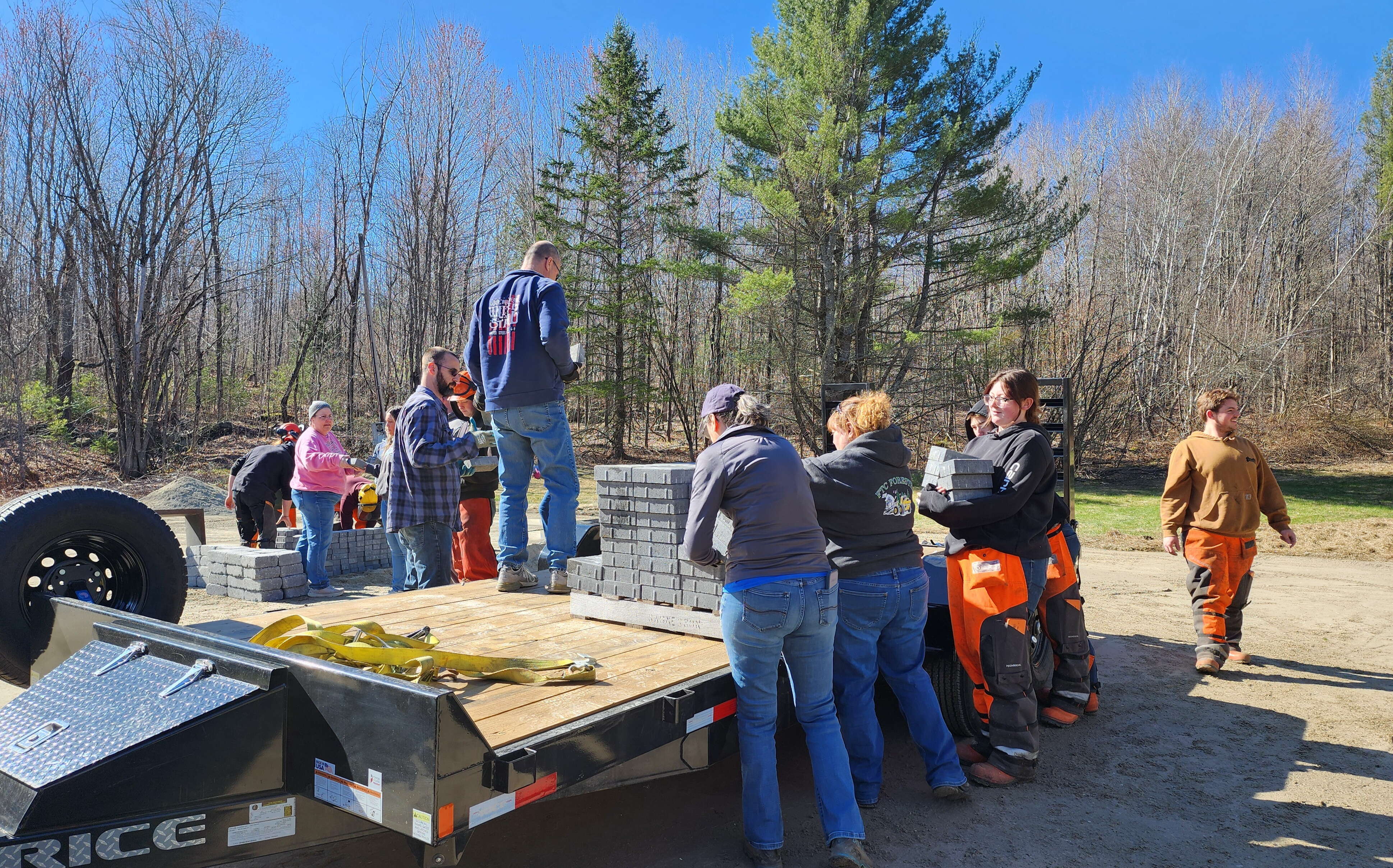
Two buildings are planned. One is for a commercial test kitchen and café, a garden center and greenhouses, and retail operations.
Another is for manufacturing and technology along with commercial real estate space for business, educational and community resources.
Ancillary spaces envisioned include participant housing, events and entertainment, and training.
The campus currently features a fire pit and patio, a perennial garden, raised garden beds, and prepared land designated for pop-up retail shops in structures acquired from OpBox. The tiny house is at the campus awaiting water and sewer hookup.
The project cost hasn’t yet been determined.
Tompkins said she’s seeking financing through business revenue, philanthropy, government grants and foundations. The purchase of the property was owner-financed, but the center is looking at traditional bank financing in order to finalize the transfer of the property to the Center for Entrepreneurial Studies.
“We hope to break ground in mid- to late 2025,” said Tompkins.
Word-of-mouth
Young people largely become involved with the center through word-of-mouth. The center has seven employees, including Tompkins.
To date, financing has included grants from organizations such as the Libra Foundation and the Maine Community Foundation and donations from E.L. Vining, OpBox and others.
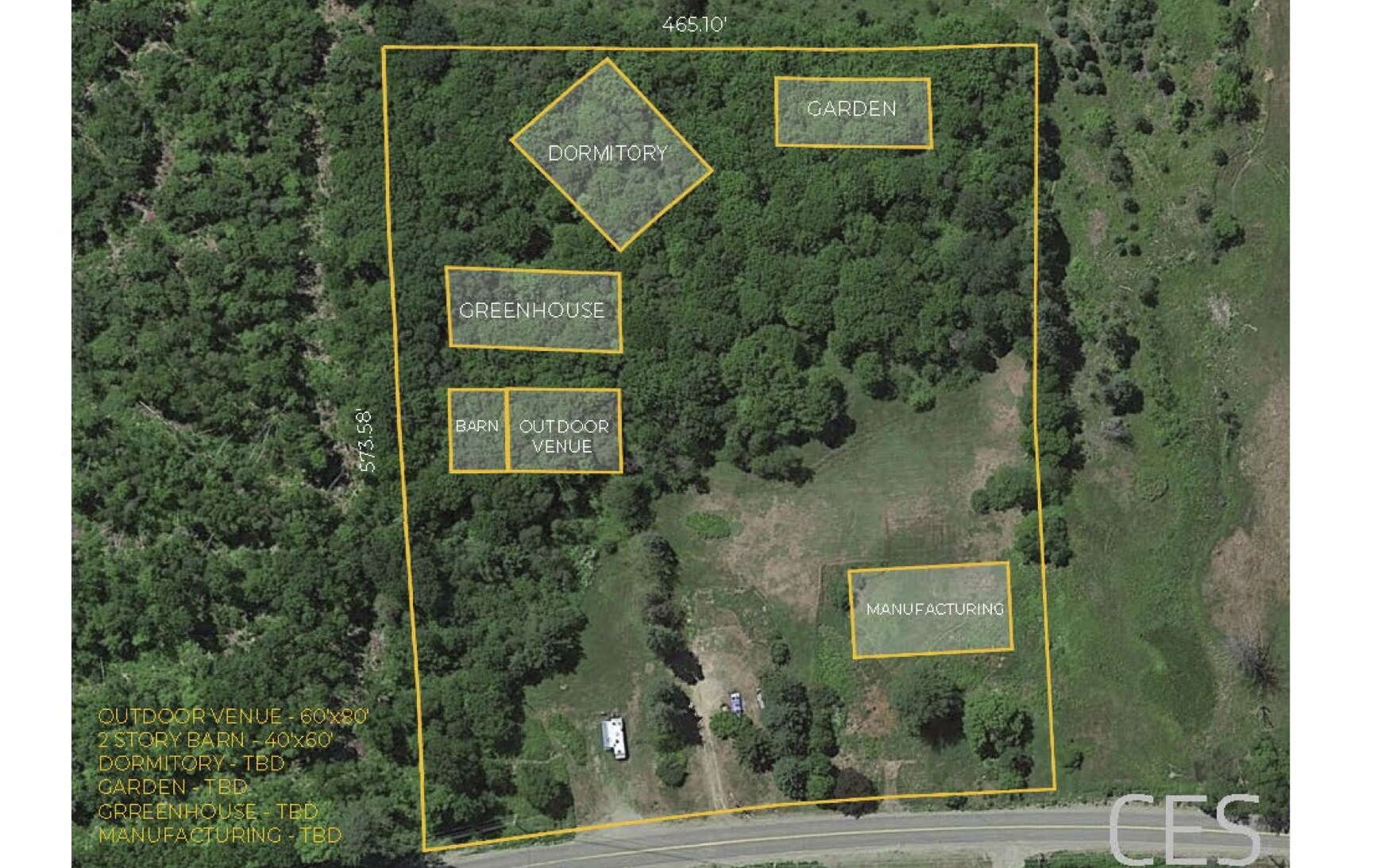
In 2022 the center signed a memorandum of understanding with the Alfond Youth Community Center to perform for a Department of Health and Human Services grant called "Improving Outcomes for Youth.” In 2023 the center secured Congressionally Directed Spending for a planning grant.
The center has assembled volunteers from various organizations, including Walmart of Farmington, the Farmington and Western Maine Baptist Church, University of Maine, Farmington and forestry students from the Foster Career & Technical Education Center in Farmington.
Today, the center works with youth age 10 to 24. At any given time, there are on average 15 participants. There have been 98 participants in total since 2020.
Second land donation
This year, the center received the donation of another five acres on Temple Road in Farmington from a local businessman, Michael Emmons. Tompkins said she’s in talks with developers “who are eager to collaborate on projects that not only address housing needs, but also contribute by cultivating skill development for future employees.”
Initial talks are centering on developing smaller homes on the five acres for young people to build and live. The plan is to eventually relocate the tiny home now at the Whittier Road property to the five-acre parcel.














0 Comments